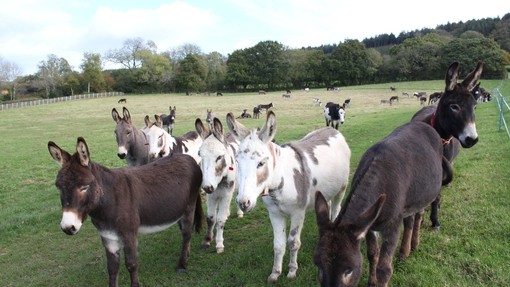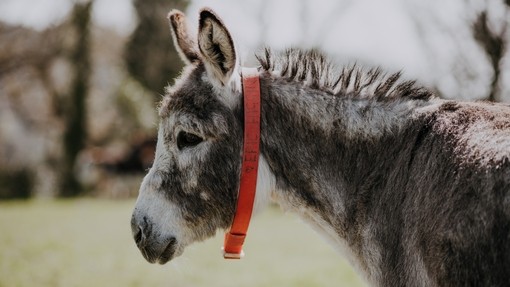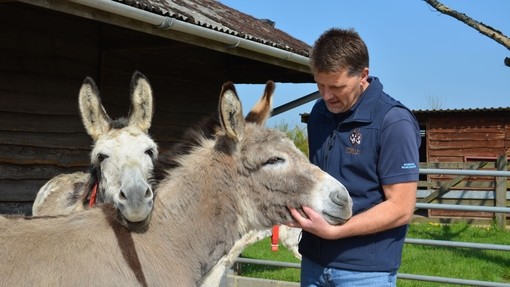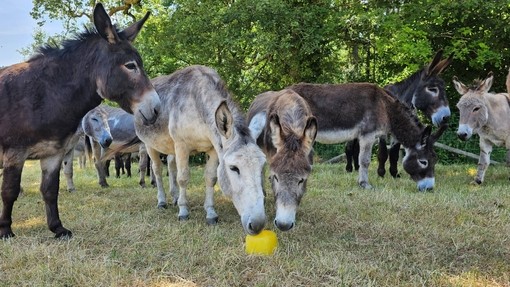Why should I vaccinate my donkeys?
Vaccinations are a safe and reliable method of stimulating the immune system, the system that will help your donkey fight infection and disease. They may not always prevent diseases, but they can help to significantly reduce the symptoms.
In some cases, proof of up-to-date vaccination is necessary if you intend to allow your donkey to mix with other equines.
The importance of vaccinations
Jamie Forrest, Veterinary Surgeon at The Donkey Sanctuary, talks about the importance of vaccinating your donkey. Accompanied by Rustie, a twenty year old gelding, Jamie talks through:
- Tetanus
- Equine influenza
- How often you need to vaccinate your donkeys
- The additional opportunities provided when your vet vaccinates your donkey.
What should I vaccinate against?
In the United Kingdom, we recommend that donkeys are vaccinated against equine influenza (flu) and tetanus.
Other vaccinations may need to be considered for pregnant animals or in donkeys that live outside of the UK.
How many doses do my donkeys need?
A primary course of injections must be given. These are then followed by booster vaccinations that keep the vaccinations topped up. The intervals between the injections of the primary course and boosters vary according to the type of vaccine and the disease that they protect against.
Your vet will advise you on when to start the initial course of vaccination and frequency of boosters. This may vary slightly, according to the vaccine used and the risk of disease.
If you miss booster vaccinations, it is usually recommended that you ‘restart’ your donkey’s vaccines. Your vet will advise you, but this would require a new primary course of vaccinations.
My donkey is scared of needles
Donkeys often tolerate vaccinations really well, but some donkeys may become ‘needle shy’.
The ‘needle shy’ donkey may become distressed when approached with a needle and may even become difficult to handle. They will need extra time and care to build their confidence and treats can be a useful distraction. Some donkeys may benefit from a professional behaviourist.




